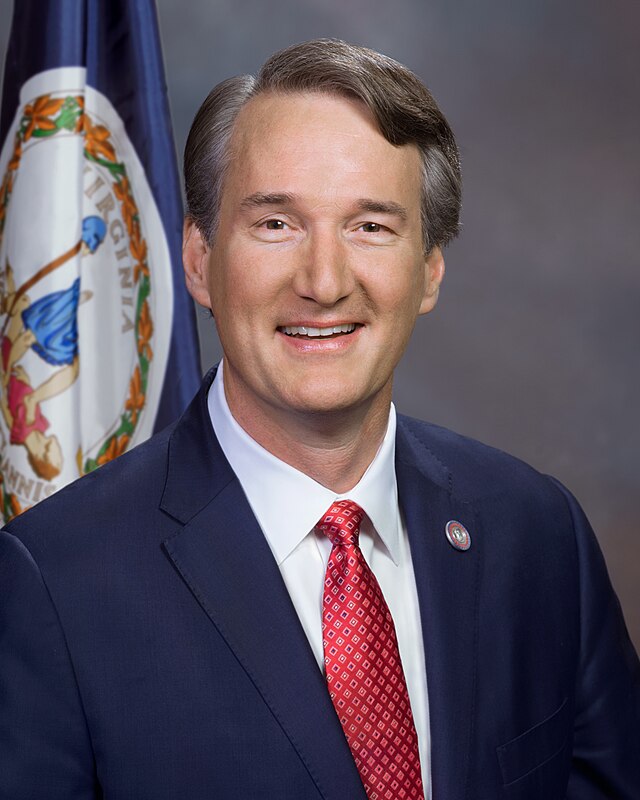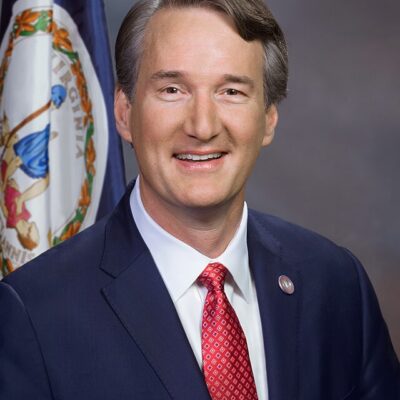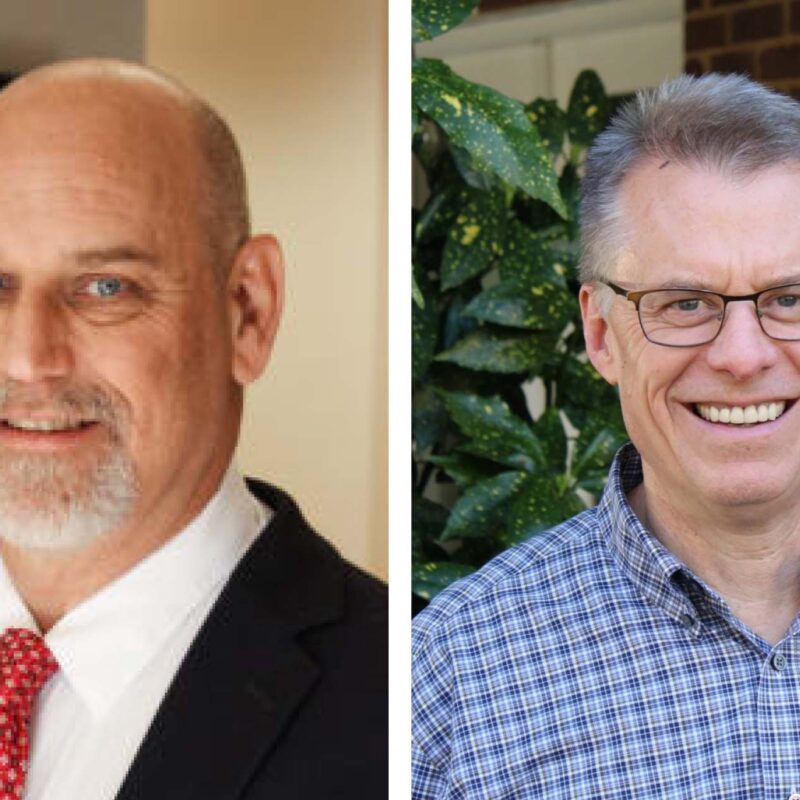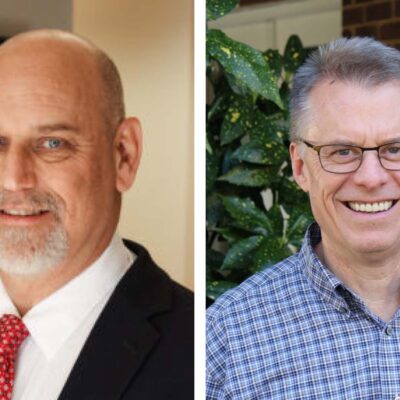After nearly a year on the job, Congressman Tom Perriello, who is a member of the Veterans Affairs Committee and the Transportation and Infrastructure Committee, reflects on his work in Washington, the health care bill, almost being burned in effigy, and Nancy Pelosi’s locker room.
 |
How have you approached the job so far in terms of balancing interests—those of your district and those of the nation as a whole?
The most important thing is to not accept at the beginning of a debate that the only two choices are “yes” or “no.” You’ve got to try to fight to make the options better, and do so based on what you think is going to work for the district and the country. When you think about it, and you take these issues that I think are about trying to get some relief to the middle class, that’s similar whether you’re talking about folks in Charlottesville, Danville or around the country. So I think at the end of the day, people focus on whether you vote “yes’” or you vote “no,” but the real work of Congress is how you can shape something before it gets to that vote.
Looking back on this first year, what are you most proud of?
I’ve been able to put a big focus on education and workforce development, starting with the $2,500 tuition tax credit I got passed, looking at a program to promote early childhood development in rural communities, expanding workforce training and apprenticeship programs for returning veterans—all of these are very focused on the issue of how we create the workforce of tomorrow that’s going to help grow the economy here. I think also we have to be thinking not about the jobs we had 20 years ago but the jobs we need to compete for 20 years from now, and I think getting out ahead in the energy sector is going to be a big factor in whether those jobs are being created in the U.S. or in China over the decades to come.
We’ve had some great victories for veterans, and being able to sit on that committee which works on a fairly bipartisan basis has been an oasis of sanity and productivity amidst the Washington chaos.
Walk through what you have done to contribute to the health care bill.
I helped lead a group of freshmen who helped block the vote in July, because we wanted more time, and when we came back, helped fight for a bill that would reduce the deficit instead of increase the deficit. As a younger person who feels like I’m going to be inheriting this deficit during my prime earning years, that’s extremely important to me and to the fiscal stability of this country. We know that doing nothing will bankrupt the country. We needed to make sure that we were doing something that was going to bend the crossbar in the other direction, and I think the fact that a lot of us stood up on that has produced a much better bill.
I also think competition is crucial, and helping to fight to get rid of the antitrust labors that help protect insurance monopolies and demanding that Medicare negotiate cheaper drug rates on the open markets to help bring costs down for our seniors were both to me basic competition-oriented strategies that will help protect consumers.
You took some heat from the left for your vote on the Stupak amendment.
I made a pledge to my district that I would not support a bill that would include federal funding for abortion, and I believe that the status quo is somewhere between where we started and where we ended up, and those conversations will continue, but that was a promise I made to my district and I meant to keep it.
Has the job as congressman been tougher than you thought it would be?
I think Congress is one of the easiest jobs in the world to do poorly and one of the tougher jobs to do right. Not just me but my whole staff have worked pretty much seven days a week and we need to because we’ve been given this honor and opportunity to serve people in a very tough economic time, and we’re not taking that lightly. We don’t want to miss an opportunity to help with the economic turnaround or the real estate market or other things where people are hurting.
So it’s certainly not been a boring job. Obviously the emotional intensity has been much higher than normal, and I find it exciting to be in during a time of high civic engagement. I’m going to listen to everybody and tell people where I agree with them and disagree with them and then try and do the best I can.
Are you still enjoying it?
You know, I’d say that “enjoy” isn’t a verb that comes to mind first, but I’m glad I’m there, and I feel very fortunate to have been given this chance. I’m just going to try to focus not on what comes next but on doing what’s in front of me as best as I can.
To make you look a little at what’s coming ahead, what do you see the 2010 election being about?
I think it’s going to be about who stepped up and produced results in a crisis. This is about who were the adults in the room when we were facing an almost certain depression and were able to come up with strategies that prevented that depression from happening, but stepped up on challenges that have been undermining America’s competitive advantage for a generation, including health care costs and energy independence and producing results ahead of partisanship and focused on righting the ship of state. And I think that’s what people will see over time was that one group was focused on how to score points for 2010 and the other side was focused on how to shore up the economy and prevent a Depression, and I’m proud to have been on the latter side of that.
Will we see much of President Obama in the Fifth District campaigning for you?
I think that people have a very positive feeling about the president even when they disagree with his policies. I think there is a strong sense of someone who’s trying to fix problems that he inherited and not use that as an excuse but acknowledge that as a starting point, and where I’ve agreed with the administration, I’ve been proud to stand with them, and where I’ve disagreed, like on the budget, I’ve let them know that as well.
So, do you want him campaigning with you in 2010?
I’ll be proud to campaign with the president next year, but I think that people are going to look at us as individuals and ask, “What has Tom done?” and I think, generally speaking, so far people say, “This guy is working his tail off and genuinely trying to find pragmatic solutions, and this is someone I can work with.”
Overall, do you think it was a net gain for you that the Tea Party in Danville was interested in burning you in effigy?
That’s pretty much an impossible question to answer. I think one thing that was clear from the ’09 election was that the Republican Party has a fight within itself about what it stands for and who’s going to define that party. There are enough problems that I’m trying to solve without trying to solve that problem for them.
Did it help you raise some money?
I don’t know if we got a big boost out of that. I think what people appreciated was that I’m willing to take the tough votes if I genuinely think it’s what’s right for the district, even if I know it takes 30 minutes to explain what’s good about the bill and 30 seconds to demagogue what’s bad about it. That’s a test of leadership, are you willing to do something that you know is right even if it’s difficult to communicate and easy to demagogue, and I think people are looking for that kind of leadership.
Both political parties have talked about independence from foreign oil for 25 years and not done a damn thing and finally we stepped up with an approach that’s actually a Republican approach, cap and trade, but it was a good idea, so it doesn’t matter if it’s a Republican idea. We fought for it and produced that result and I think that’s going to be really important for our economy as we move forward.
The chairman of the Danville Tea Party seems to think that you got a literal pat on the back from Nancy Pelosi before taking the vote on the health care bill. Any truth to that?
I don’t know what that’s referring to. There’s a lot of patting on backs that goes on across the aisle in that locker room kind of way in Congress, so I’m not sure what that’s about.
I think what I’ve been able to do up there, and Rick Boucher [D-VA, 9th District] has been really helpful in setting a model for me on this, is establishing myself as someone who’s there to discuss real policy solutions. I’m not going to show up at a lot of the cocktail parties, but when it comes down to policy debates, I’m going to have a seat at the table and I’m going to have done my homework. And I think the leadership knows that if I think something’s right, I’m going to step up even if it means taking a hit, and if I think it’s wrong, I’m going to let them know even if it’s what the party wants. I think that’s an important brand to establish early, and I think we did it with the way we were campaigning, and we’ve done it with the way we’ve legislated so far.
You expressed a lot of idealism in your campaign for Congress about changing Washington and doing things the right way. Do you still think there’s room for that mindset in Washington?
January was one of those hope-shattering months in terms of how the Republicans chose to play the stimulus debate when the country was literally teetering on the brink of a depression, but I wouldn’t have survived the campaign without having a nice mix of idealism and realism, and I think that’s something that as I learn more about Washington, I’ll learn more ways to challenge the status quo. Sometimes it’s not just about what you can pull off but what you can get started, and I think I feel good about the process of trying to do that.
There was a group of us who came in, some Republican some Democrat, who were a little younger—30s early 40s—and there was a sense in early January that we were really going to be able to work together on fiscal responsibility, and their leadership really just shut that down, the working across the aisle, and I think that was too bad. But as circumstances change and people find their footing, I think there will be another opportunity for us to come around this sort of generational identity of shoring up the nation’s future, and that’s something that’s worth sticking around for.





